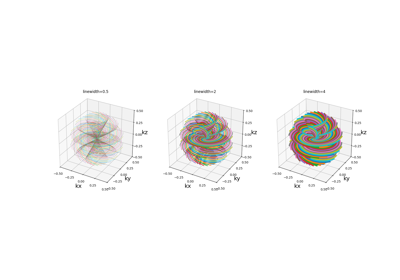Hardware#
- class mrinufft.trajectories.utils.Hardware(gmax: float = 0.04, smax: float = 200, n_coils: int = 32, min_dwell_time: float = 1e-09, grad_raster_time: float = 9.999999999999999e-06, field_strength: float = 3.0)[source]#
Bases:
objectHardware configuration for MRI sequences.
- Parameters:
gmax (float) – Maximum gradient amplitude in T/m. Defaults to 40 mT/m.
smax (float) – Maximum slew rate in T/m/s. Defaults to 200 T/m/s.
n_coils (int) – Number of coils used in the MRI system. Defaults to 8.
min_dwell_time (float) – Minimum ADC dwell time in seconds. Defaults to 1 ns.
grad_raster_time (float) – Gradient raster time in seconds. Defaults to 10 us.
field_strength (float) – Magnetic field strength in Tesla. Defaults to 3.0 T.
- raster_time[source]#
The gradient raster time in seconds, which is the same as grad_raster_time.
- Type:
Notes
The Hardware class encapsulates the hardware constraints for MRI sequences, including the maximum gradient amplitude, slew rate, number of coils, dwell time, gradient raster time, and magnetic field strength. It is designed to be used in conjunction with the Acquisition class, which defines acquisition parameters such as field of view, image size, and gyromagnetic ratio.
The default values for the parameters are set to typical values used in MRI systems. These values can be adjusted based on the specific hardware being used for MRI acquisition.
For convenience, we define several common hardware configurations,
Methods
__init__Attributes
field_strengthgmaxgrad_raster_timemin_dwell_timen_coilsAlias of grad_raster_time.
smaxExamples using
mrinufft.trajectories.utils.Hardware#

